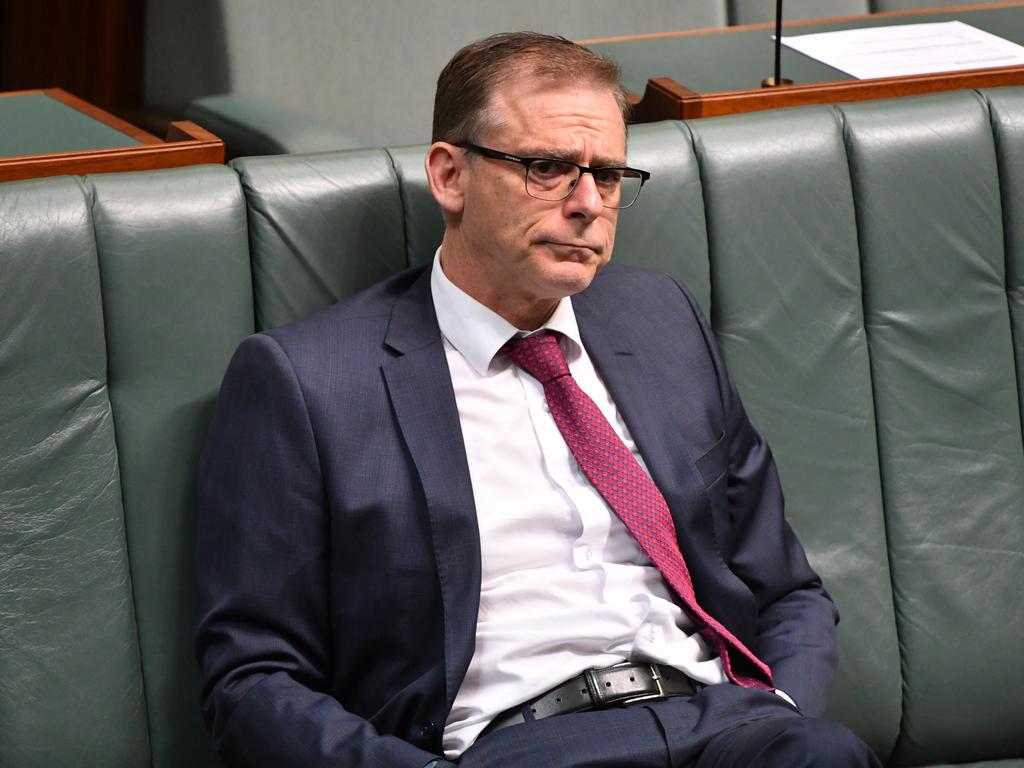
Sullivan, the former adviser to dumped ALP factional warlord and MP Adem Somyurek, told this week’s anti-corruption inquiry the ombudsman’s findings failed to change Labor because everyone involved in the rorting believed they could continue to get away with it.
Barely containing his distaste, IBAC Commissioner Robert Redlich QC raised the “red shirts” report in asking why publicly funded electorate and ministerial jobs continued to be misused after the report’s release in March 2018.
Sullivan – political adviser, electorate office cleaner and philatelist – summed it up this way: Labor MPs and staff made a calculated decision that everyone had too many skeletons in their closets to blow the whistle on misconduct. Labor’s version of the nuclear doctrine of mutually assured destruction.
Sullivan’s evidence goes only part of the way to explaining this shameful continuance. To get the rest of this story of institutional moral and ethical failure – all on the watch of Premier Daniel Andrews, who has led the party for 11 years – you have to dig into Ombudsman Deborah Glass’s 200-page report.
Ms Glass is a formidable inquisitor and she dips a rapier sword in ink to slice and dice Labor for establishing an “artifice” to deliberately use taxpayer-funded electorate staff to campaign for Labor in the 2014 election: $388,000 was repaid by the ALP.
After three days of IBAC hearings, it is important to revisit her report. In particular, one under-appreciated aspect that exposes the bankrupt culture of the ALP and Andrews government.
Ms Glass cuts to the point in her foreword: “Answering this has been like trying to complete a jigsaw puzzle from which, at the outset, you are not sure how many pieces are astray and whether you will have enough to see the image.
“In the end, although some pieces are missing because of claims of parliamentary privilege and exclusive cognisance, or simply loss of memory as some witnesses asserted, a clear picture emerged.”
She went on: “The question of jurisdiction delayed the investigation, the Legislative Assembly’s assertion of exclusive cognisance – in effect that I cannot investigate members of the assembly – was detrimental to it.
“I did not regard the scope of my investigation to be limited to the Legislative Council, but I decided not to test my view in the courts; enough time and public money had been spent on legal proceedings, and I could still investigate the matter by focusing on council members. But this limited my use of coercive powers. While I can draw cogent conclusions from the evidence available, there are gaps in the evidence of which parliament should be aware.”
Labor’s lower house MPs refused to co-operate with the very investigation the party is now found to have ignored. Their argument, essentially that she didn’t have the authority to investigate lower house members, remains as outrageous now as it was five years ago.
As a direct result of this protectionist arrogance, the full cost of the “red shirts” rip-off was never known. And it wasn’t just passive resistance. The Andrews government took the case to the High Court to block the probe. It lost, Ms Glass pressed on, but the lower house MPs never co-operated.
One Labor MP was recently moved to observe that the government’s ability to not just survive but retain popular support in the face of scandals and disaster meant moral boundaries kept getting crossed.
“Red shirts or whatever the crisis of the day is, other than being beaten up in the media, what are the direct political consequences? The experience of our team is there hasn’t been any political punishment for any of those things,” they said.
“Therefore are we free to do those things with abandon? That’s the challenging internal morality we’re currently immersed in.
“We kind of have this sense of ‘How much can we get away with before they punish you?’ Even with the hotel quarantine issues … surely, surely there is significant or indelible political consequence here. And then there is not.”
There you have it, Commissioner Redlich.






Adam Sullivan’s evidence that the Victorian Ombudsman’s “red shirts” report was ignored by Labor MPs and staff and, more broadly, failed to cleanse the culture of the Victorian ALP is appalling but not surprising.